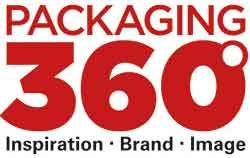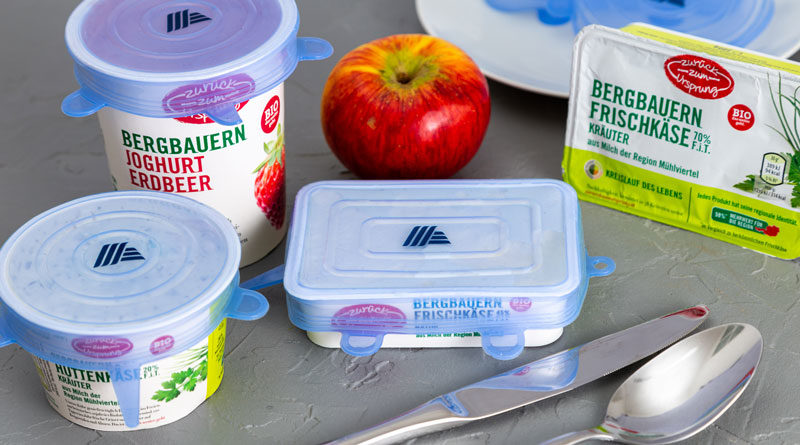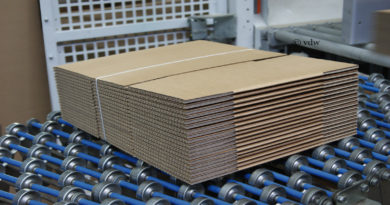Silicone flexi-lids as an everyday aid
As an environmentally friendly alternative to plastic lids, cling film and aluminium foil, Austrian discounter Hofer, which is part of the Aldi Süd group of companies, offers various flexi-lid sets made of silicone. These everyday aids can be used to seal bowls, cups and containers of all shapes and sizes. Hofer is also working on further reducing plastic use for its private labels.
As part of its new packaging strategy, the Austrian discounter did away with plastic lids in 2019 for 13 “Back to the Origin” organic products. For example, cream cheese, cottage cheese and plain and fruit yoghurts are now delivered in 400 gramme cups of the organic private label in all stores, without additional plastic lids on top of the foil cover. This saves Hofer 35 tonnes of plastic a year, in turn saving 173 tonnes of CO2.
The retailer now offers a reusable alternative to disposable plastic lids in the form of four different silicone flexi-lid sets. Dishwasher and microwave safe, these everyday aids can be used in a variety of ways, thanks to their extremely stretchy material and different sizes. For example, the silicone flexi-lids offer a hygienic and airtight way to reseal packages or home-cooked food, keeping food fresh longer and reducing food losses. Two of the four sets fit the dimensions – round or square – of Hofer’s 13 “lid-free” organic products.
The “Hofer Packaging Mission” was initiated in September 2018, with the goal of offering 50 per cent of the fruit and vegetable range sustainably packaged or unpackaged by the end of 2020, making 100 per cent of private label packaging recyclable by 2022, and reducing the amount of packaging for private labels by 30 per cent by 2025. “There are numerous complex and interrelated aspects to be considered and balanced in order not to stray from the ambitious goals with misconceived solutions – i.e. plastic alternatives that are far more energy-intensive to produce or obtained from valuable agricultural raw materials that would compete with food (e.g. corn starch). Instead, holistic sustainable alternatives, and – ideally – packaging materials can be saved completely while maintaining product quality and shelf life,” the company says.
Examples of alternative packaging: natural branding – laser engraving that replaces the required labelling using packaging film or stickers on the fruit – together with reusable crates and alternative packaging replacing conventional plastic is saving over 100 tonnes of conventional plastic and just under 4,800 tonnes of cardboard each year. If packaging cannot be avoided completely, Hofer uses alternative materials, for example biogenic nets for some organic products such as potatoes or onions. The natural source material for these cellulose nets is beechwood, which comes exclusively from Central Europe, and mainly from Austria. In addition, fruit and vegetables of the organic private brands are packed in biodegradable film wherever possible.




